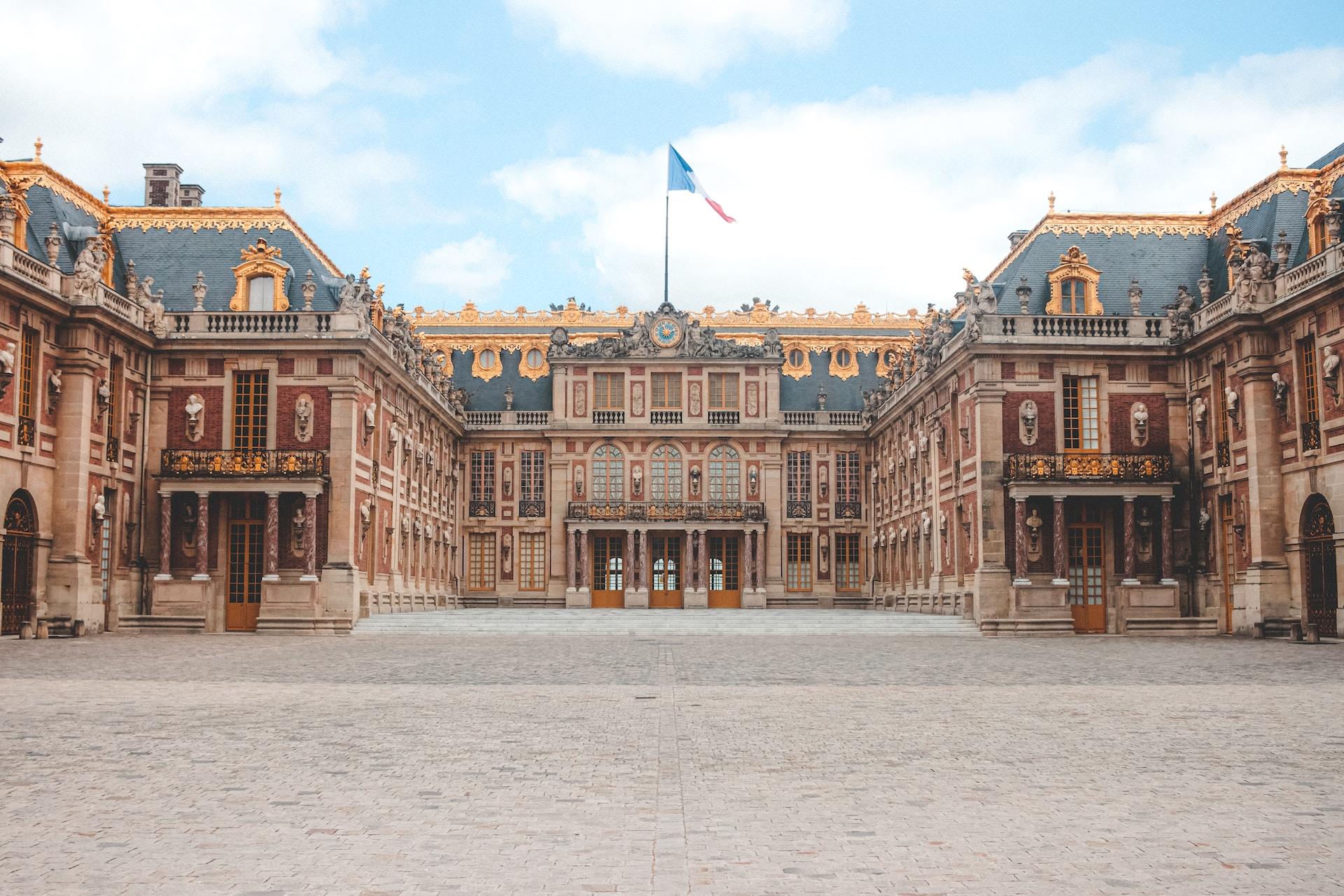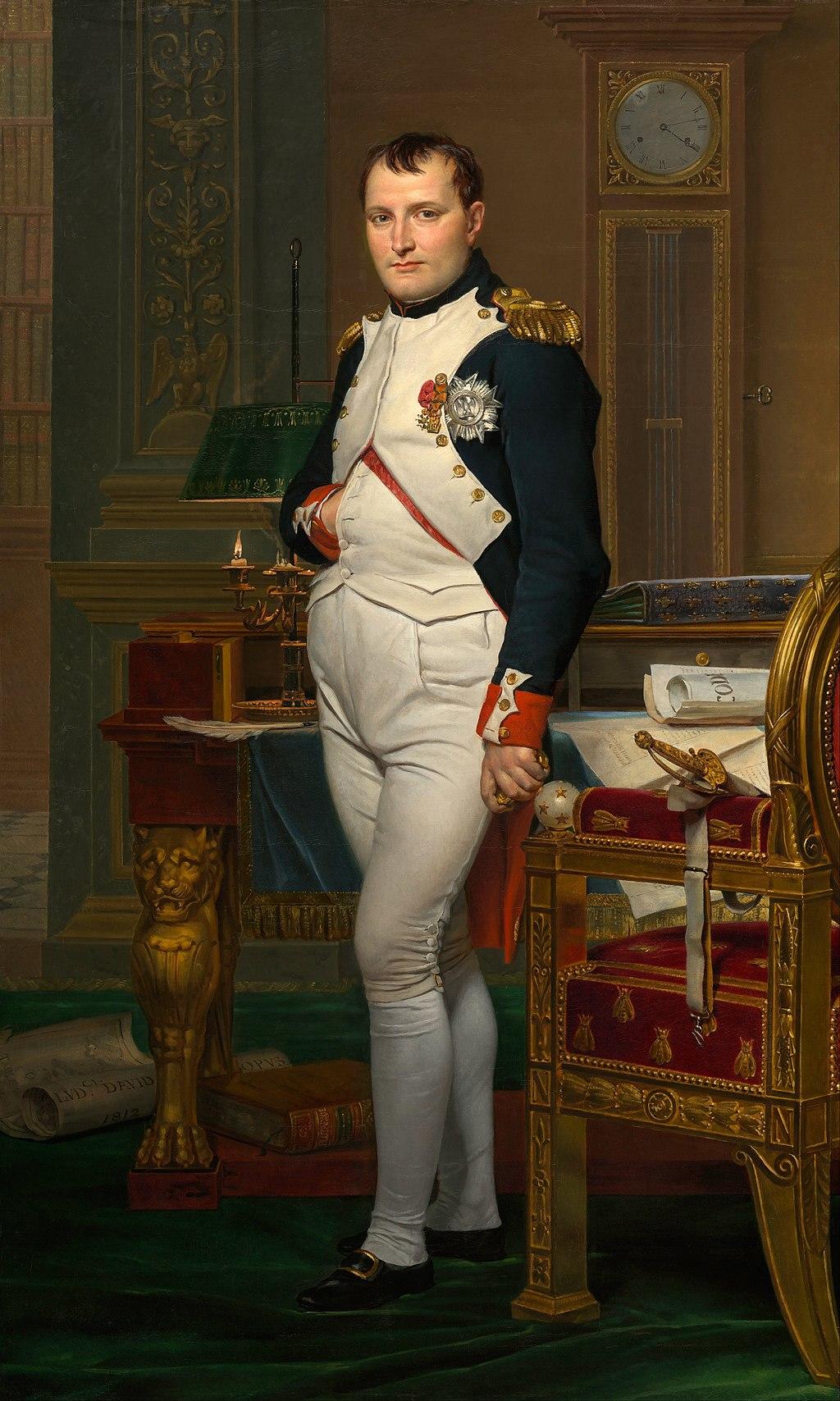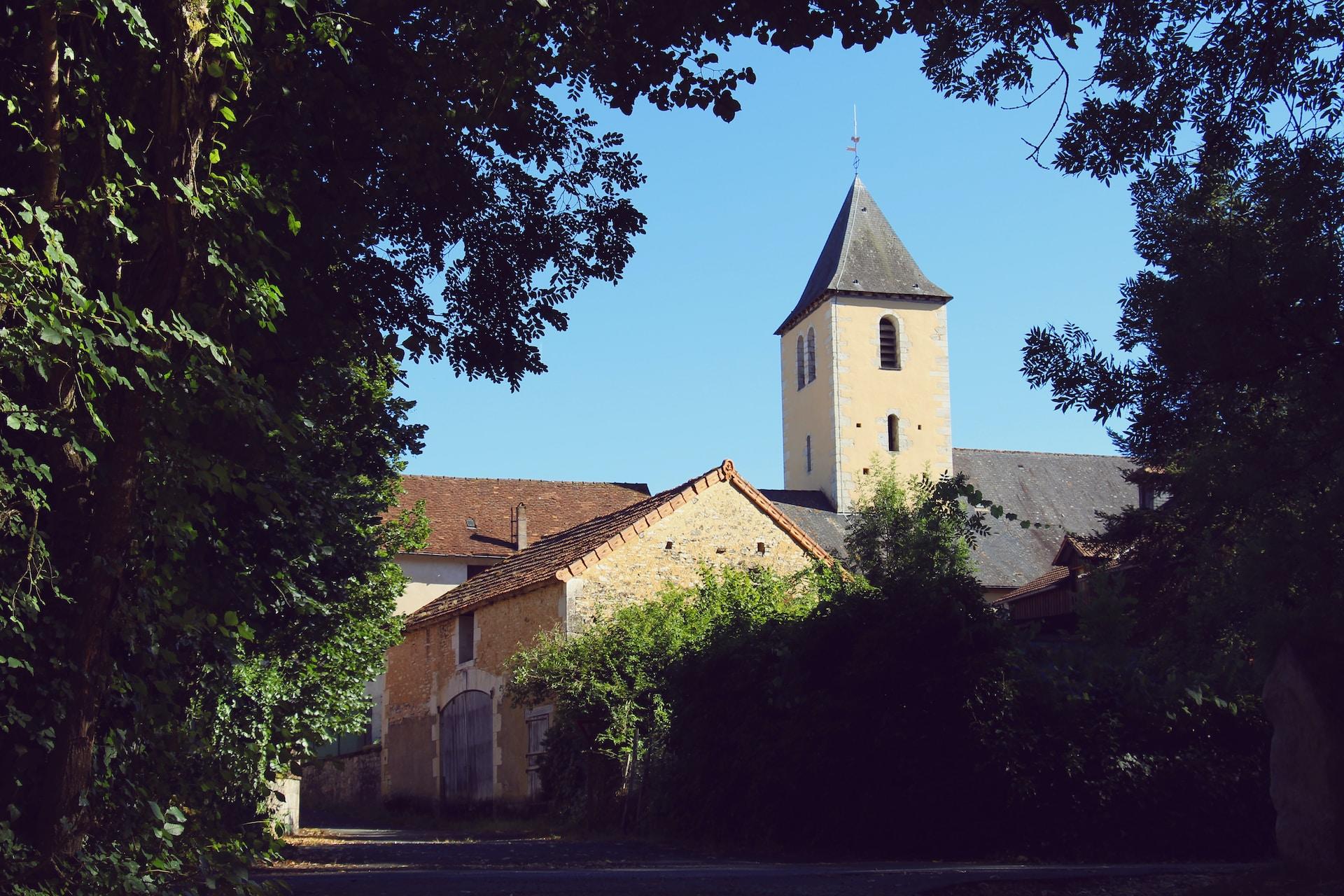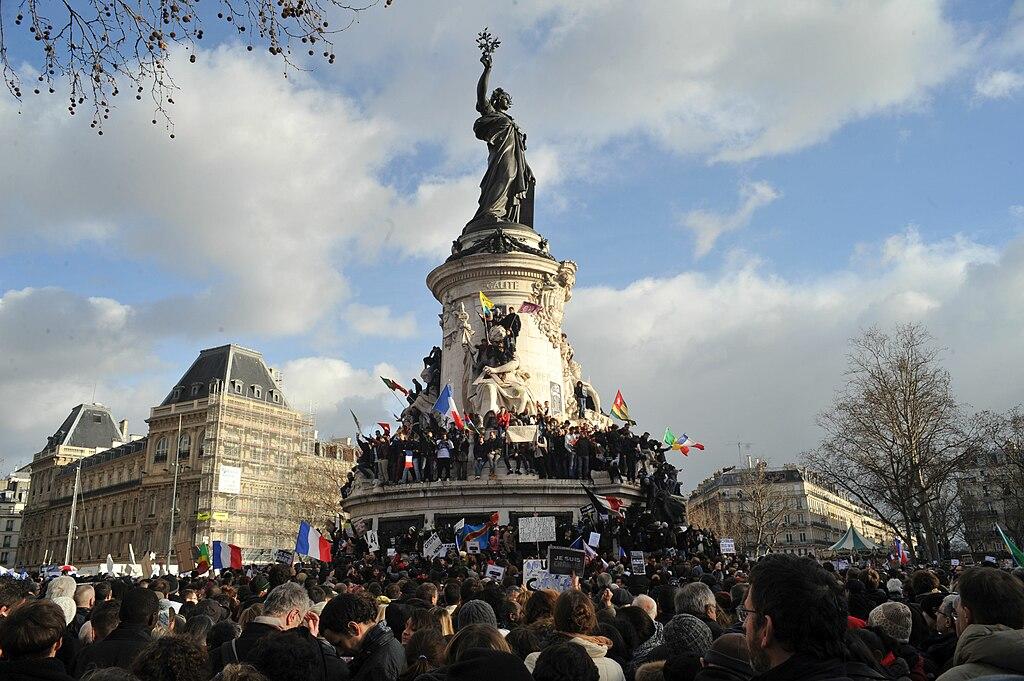France has seen hundreds of era-defining events as well as a wealth of important figures. From the shaping of the nation in the Middle Ages to the abolition of the monarchy to its role in the Second World War, the history of France is rich and varied. Learning more about a country’s past is a great way to gain an understanding of the outlook and traditions of its people.
Which historical events are the most significant? And which ones have left their mark on modern-day France? Here are some of the most important events that we'll look at in more detail throughout the article:
| Date | Event | Description |
|---|---|---|
| 52 BC | Battle of Alesia | Julius Caesar defeats the Gauls leading to Roman control over Gaul. |
| 800 | Charlemagne Crowned Emperor | Charlemagne is crowned Emperor founding the Holy Roman Empire. |
| 1337-1453 | Hundred Years' War | A long conflict between France and England over territorial claims. |
| 1429 | Joan of Arc’s Siege of Orléans | Joan of Arc leads a crucial victory against the English. |
| 1789 | French Revolution Begins | The storming of the Bastille sparks the French Revolution. |
| 1804 | Napoleon Becomes Emperor | Napoleon crowns himself Emperor establishing the French Empire. |
| 1815 | Battle of Waterloo | Napoleon is defeated and exiled; monarchy is restored. |
| 1914-1918 | World War I | France is a key Allied power; war devastates French land. |
| 1939-1945 | World War II | France is occupied by Nazis; later liberated with Allied help. |
| 1958 | Fifth Republic Established | Charles de Gaulle reforms government creating the modern French Republic. |
| 1992 | Maastricht Treaty Signed | France joins the European Union strengthening European integration. |

Ancient and Medieval France
30,000- 10,000 BCE
Prehistoric France
Notable prehistoric sites like Lascaux and Chauvet Caves feature some of the world’s oldest known cave paintings.
600 BCE - 50 BCE
Celtic Gaul - Roman Conquest
Julius Caesar’s campaigns culminated in the Roman conquest of Gaul, integrating it into the Roman Empire as the province of Gallia
50 BCE -486 CE
Gallo-Roman Culture
A blend of Roman and Celtic cultures. Infrastructure like roads, amphitheatres, and baths were developed.
476 CE
Fall of the Western Roman Empire
The deposition of the last Roman emperor, Romulus Augustulus, by the Germanic chieftain Odoacer, is traditionally marked as the fall of the Western Roman Empire.
5th - 10th Centuries
Merovingian and Carolingian Dynasties
486 CE
Clovis I Unites the Franks
Clovis I defeats the last Roman ruler in Gaul and unites the Frankish tribes, laying the foundation for modern France.
800 CE
Charlemagne Crowned Emperor of France
Charlemagne is crowned Holy Roman Emperor, expanding the Frankish empire and promoting learning and culture through the Carolingian Renaissance.
843
Signing of the Treaty of Verdun
Before France became the country we know today, it was known as Gaul, inhabited by Celtic tribes. Ancient Gaul was inhabited by Celtic tribes, who had a rich culture characterized by intricate metalwork, fortifications, and a polytheistic religion.
In 52 BCE, Julius Caesar's Roman legions conquered Gaul, integrating it into the Roman Empire. This period saw the introduction of Roman laws, architecture, roads, and urban planning, blending Celtic and Roman traditions and laying the foundation for modern French culture.
Merovingian and Carolingian Dynasties
The fall of the Roman Empire paved the way for the rise of the Frankish kingdoms. Clovis I united the Frankish tribes and converted to Christianity around 500 CE, laying the foundation for modern France.
Clovis' changes to the political system from one where each tribe had its own ruler, to one where they were all ruled over by a king, homogenised the Frankish Kingdom and ensured that the crown would be passed down to his descendants. Because of this, Clovis I is considered to be the founder of the Merovingian dynasty, which survived for over 200 years.

Charlemagne, also known as Charles the Great, jointly inherited the Frankish crown with his brother, Carloman, following the death of their father, Pepin III.
The division of power over the kingdom made for a fierce rivalry between the brothers, and Charlemagne made as many alliances as he could secure his position as ruler.
However, when Carloman died suddenly and unexpectedly in 771, Charlemagne was left as ruler of the Frankish Kingdom. Frankish tradition dictated that as King of the Franks, Charlemagne was a warrior king whose duty was to lead his troops to victory over other territories in the same way that his Merovingian predecessors had.
The Carolingian dynasty, especially under Charlemagne, expanded its territory and influence, with Charlemagne crowned Holy Roman Emperor in 800.
Want to learn more about the people behind French history?
Following the death of Louis the Pious (son of Charlemagne), the Carolingian empire was divided into three territories – one from each of Louis’ surviving sons.
Louis’ eldest son, Lothair I, was not happy with the amount of power he had been left by his father, and so he sought to overrule his brother Louis the German and half-brother Charles the Bald in order to gain control of the whole empire. In retaliation to Lothair’s greed, Louis and Charles declared war on their brother.
The signing of the treaty of Verdun brought an end to the Carolingian Civil War and partitioned Charlemagne’s empire into three sections: West Francia, Central Francia and East Francia, which were ruled by and Charles the Bald, Lothair and Louis the German respectively.
The signing of this treaty is particularly important as it laid the foundations for modern-day European countries.
Medieval France
987
Start of the Capetian Dynasty
Hugh Capet is crowned king, beginning the Capetian dynasty and the gradual centralization of royal power.
1337-1463
The Hundred Years' War
Conflict between France and England over territorial claims, marked by battles like Crécy and Agincourt, and figures like Joan of Arc.
1415
Battle of Agincourt
Major English victory during the Hundred Years' War.
1429
Joan of Arc Lifts the Siege
Joan of Arc lifts the Siege of Orléans, turning the tide in favour of France and paving the way for Charles VII's coronation.
The Capetian Dynasty
The coronation of Hugh Capet in 987 marked the beginning of the Capetian dynasty, which would rule France for centuries. This period was characterized by the development of a centralized monarchy and the gradual consolidation of power. Feudalism was the dominant social system, with the king's authority often challenged by powerful nobles. Important monarchs like Philip II (Philip Augustus) expanded French territory and strengthened royal authority, while Louis IX (Saint Louis) was known for his justice and piety.
The Hundred Years' War
The Hundred Years' War (1337-1453) was a protracted conflict between France and England, driven by territorial disputes and claims to the French throne. The war saw significant battles like Crécy, Poitiers, and Agincourt. The heroics of Joan of Arc, who inspired French forces and lifted the Siege of Orléans, were pivotal in turning the tide in favour of France. The war ended with the expulsion of the English from most of France, solidifying the French monarchy's power.
Renaissance and Religious Wars
1515-1547
Reign of Francis I
Francis I becomes king, initiating the French Renaissance by fostering arts and learning, and bringing Leonardo da Vinci to France.
1534
Affair of the Placards
Anti-Catholic posters appear in public places, leading to increased tensions between Catholics and Protestants (Huguenots).
1562-1598
French Wars of Religions
A series of brutal conflicts between Catholics and Huguenots, marked by massacres and power struggles.
1598
Edict of Nantes Issued
Edict of Nantes grants religious tolerance to Huguenots, ending the Wars of Religion and stabilizing France under Henry IV.
1643-1715
Reign of Louis XIV
Reign of Louis XIV, the Sun King, who strengthens absolute monarchy, expands French territories and builds the Palace of Versailles.
1475
Treaty of Picquigny
King Louis XI brought an end to the Hundred Years' War with the signing of the Treaty of Picquigny, declaring peace between England and France.
The French Renaissance
The French Renaissance, under kings like Francis I (1515-1547), was a period of cultural, artistic, and intellectual revival influenced by Italian Renaissance ideals. Francis I fostered arts and learning, bringing Leonardo da Vinci to France.
However, the latter part of the 16th century was marred by the Wars of Religion (1562-1598) between Catholics and Huguenots. Events like the St. Bartholomew's Day Massacre (1572) intensified the conflict. The Edict of Nantes (1598), issued by Henry IV, granted religious tolerance to Huguenots, ending the wars and stabilizing France.
The Age of Absolutism
The 17th century saw the rise of absolute monarchy under Louis XIV, known as the Sun King (1643-1715). Louis achieved this firstly by declaring himself as the divine ruler of the Kingdom of France following the death of Cardinal Mazarin, his chief minister. Though this move was strictly against French political and royal tradition, Louis was convinced of his divine right to rule over the Kingdom as a dictator.

Louis XIV's reign is noted for the centralization of royal power and the construction of the opulent Palace of Versailles, symbolizing his absolute authority.
During his time as ruler of France, Louis saw it as his duty to address the problems being caused by the nobility, which usually appeared in the form of civil wars. He managed to do things by hosting events for the aristocracy as well as the parliament and other members of the royal family at Versailles. While this united political and royal life, it also meant that Louis had a means of keeping an eye on the nobles.
Louis XIV's ambitious foreign policy aimed to expand French influence in Europe, but his numerous wars, including the War of the Spanish Succession, were costly and strained France's resources. His reign left a lasting legacy on the French state and culture.
The French Revolution Timeline
14 July 1789
Storming of Bastille
The French Revolution begins, leading to the abolition of the monarchy and the establishment of the Republic.
1789
Declaration of the Rights of Man and of the Citizen
A fundamental document of the Revolution, asserting the rights of individuals and the principles of national sovereignty.
1791 September
First French Constitution
Establishes a constitutional monarchy, limiting the powers of the king.
1792 August
The insurrection of August 10
The monarchy is effectively overthrown, leading to the establishment of the First French Republic.
1793 January
Execution of Louis XVI
King Louis XVI is executed by guillotine, marking the radical phase of the Revolution.
1793-1794
Reign of Terror
Led by Robespierre, this period was marked by mass executions and political purges.
1794 July
Fall of Robespierre
Robespierre is arrested and executed, ending the Reign of Terror.
1795
Directory Established
A five-member committee governs France, leading to a period of political instability.
The French Revolution was a pivotal point in the history of France.
Starting with the riots by a disgruntled Third Estate (made up of peasants), and ending with the abolition of the French monarchy, the French Revolution saw many bloody battles, executions and triumphs for the rebels.
There were many causes of the revolution. For instance, a financial crisis and hefty debt left King Louis XVI looking for a way to raise funds. Unfortunately, his proposed taxation of the traditionally-exempt nobles was rejected, and when he brought together the Estates-General in an attempt to resolve the issue.
However, this did not go to plan, and the Third Estate declared itself the sovereign ruler of France after separating from the Estates-General. The revolution culminated in the execution of the royalty and anyone who was suspected to be planning a counter-revolution Maximilien Robespierre.
The Declaration of the Rights of the Man and of the Citizen marked a key point in the French Revolution when it was adopted as part of the creation of a new French constitution.
The document is made up of seventeen articles detailing the rights of men within the context of a new France. For instance, the Declaration calls for an end to feudalism and therefore to aristocratic powers over land and the people that work on it, as well as granting the French people sovereignty over their country.
This declaration was used alongside the Magna Carta as inspiration for the UN's Universal Declaration of Human Rights in 1948.

The Napoleonic Era
1799 November
Coup of 18 Brumaire
Napoleon seizes power, ending the Directory and establishing the Consulate.
1804
Napoleon Crowned Emperor of France
Napoleon crowns himself Emperor of the French, beginning the First French Empire.
1805
Battle of Austerlitz
Napoleon's decisive victory against Austria and Russia, establishing his dominance in Europe.
1806
Battle of Jena-Auerstedt
Napoleon defeats Prussia, leading to the dissolution of the Holy Roman Empire.
1812 June-December
Invasion of Russia
Napoleon's disastrous campaign in Russia, leading to a significant loss of troops and weakening his power.
1815 March-June
Hundred Days
Napoleon escapes from Elba, returns to power, and is ultimately defeated at the Battle of Waterloo.
1815 June
Battle of Waterloo
Napoleon is defeated by British and Prussian forces, marking the end of the Napoleonic Wars.
1815 October
Napoleon Exiled to Saint Helena
Napoleon is exiled to the remote island of Saint Helena, where he spends the remainder of his life.
The Napoleonic Era (1799-1815) was a transformative period in European history, characterized by the meteoric rise and dramatic fall of Napoleon Bonaparte.

Seizing power in a coup d'état in 1799, Napoleon established the Consulate and later declared himself Emperor in 1804, marking the beginning of the First French Empire.
His reign was marked by a series of military campaigns, known as the Napoleonic Wars, which saw French dominance extend across much of Europe.
The Napoleonic Code, introduced in 1804, remains one of his most enduring legacies, fundamentally reforming the legal framework in France and influencing legal systems worldwide. Despite significant achievements in administration, education, and infrastructure, Napoleon's era was also marked by authoritarian rule and relentless warfare.
Key victories included Austerlitz and Jena, but his eventual defeat at the Battle of Waterloo in 1815 marked the end of his reign and the restoration of the monarchy. Napoleon's legal reforms, codified in the Napoleonic Code, had a lasting impact on legal systems worldwide.
Did you know that Superprof tutors offer French lessons online, where you might discuss these events in depth?
19th Century France: Political Instability & Restoration
1815-1848
The Congress of Vienna
The Congress of Vienna restores Louis XVIII to the throne, marking the beginning of the Bourbon Restoration.
1830
July Revolution
A series of riots and uprisings in Paris force Charles X to abdicate. Louis-Philippe becomes king, initiating the July Monarchy and the title "Citizen King."
1848
February Revolution
Widespread discontent leads to the February Revolution, resulting in the abdication of Louis-Philippe and the establishment of the Second Republic.
1848
Election of Louis-Napoleon Bonaparte
Louis-Napoleon Bonaparte, nephew of Napoleon I, is elected President of the Second Republic.
1851 December
Coup d'état
Louis-Napoleon stages a coup, dissolving the National Assembly and eventually declaring himself Emperor Napoleon III, beginning the Second Empire.
1853-56
Crimean War
France, allied with Britain and the Ottoman Empire, fights against Russia, gaining international prestige.
1870-1871
Franco-Prussian War
Tensions between France and Prussia escalate into full-scale war.
1870-71
Siege of Paris
Prussian forces besiege Paris, causing severe hardship. The French government eventually capitulates.
1871
Paris Commune
In the aftermath of the war, radical socialists and workers seize control of Paris, establishing the Paris Commune.
1871 May
Treaty of Frankfurt
The treaty ends the war, with France ceding Alsace and Lorraine to Germany and agreeing to pay heavy reparations.
1875
Constitution of the Third Republic
The new constitution is adopted, establishing a stable republican government with a strong parliamentary system.
1899
Eiffel Tower Completed
The Eiffel Tower is completed as part of the 1889 Exposition Universelle, symbolizing France's industrial and cultural achievements.
The 19th century was a period of dramatic change and turbulence for France, characterized by shifts between monarchy, republic, and empire. It began with the fall of Napoleon Bonaparte and the restoration of the Bourbon monarchy in 1815, following his defeat at the Battle of Waterloo.
The July Revolution of 1830 ended the Bourbon monarchy, leading to the establishment of the July Monarchy under Louis-Philippe, known as the "Citizen King." This period saw a blend of liberal and conservative policies but ultimately failed to satisfy the rising demands for greater democratic reforms and social justice. The discontent culminated in the February Revolution of 1848, which overthrew Louis-Philippe and established the Second Republic.
The Second Republic was short-lived, marked by political instability and social upheaval, including the June Days Uprising, a workers' revolt that was brutally suppressed. In 1851, Louis-Napoleon Bonaparte, the nephew of Napoleon I, staged a coup d'état and declared himself Emperor Napoleon III, ushering in the Second Empire. Napoleon III's reign brought significant modernization and industrialization to France, but his foreign policies led to the disastrous Franco-Prussian War in 1870.
The defeat in the Franco-Prussian War resulted in the fall of the Second Empire and the proclamation of the Third Republic. This period began with the bloody suppression of the Paris Commune in 1871, a radical socialist government that briefly ruled Paris.
Throughout the 19th century, France experienced profound social and economic transformations. The Industrial Revolution brought significant changes, including urbanization, the rise of a working class, and major infrastructural developments like railways and factories.
Colonial expansion was another hallmark of this period, as France established and expanded its empire in Africa, Asia, and the Pacific. This colonial enterprise brought wealth and influence but also led to conflicts and ethical debates about imperialism.
20th Century: World Wars, Reconstruction, and Modernisation
1905
Separation of Church and State
The law separating church and state is enacted, reinforcing secularism as a key principle of the French Republic.
1894-1906
Dreyfus Affair
A political scandal involving the wrongful conviction of Jewish army officer Alfred Dreyfus for treason highlights deep divisions in French society over anti-Semitism and militarism.
1914-1918
World War I
France suffers enormous casualties and destruction, ending with the Treaty of Versailles, which imposes heavy reparations on Germany and redraws European borders.
1918
Treaty of Versailles
Ends World War I, imposing heavy reparations on Germany and redrawing European borders.
1939-1945
World War II and Occupation
France is invaded and occupied by Nazi Germany in 1940. The country is divided into occupied and Vichy France, the latter collaborating with the Nazis.
1940 June
Fall of France
France signs an armistice and is invaded and occupied by Nazi Germany; Vichy France is established under Marshal Pétain.
1944 August
Liberation of Paris
Allied forces and the French Resistance liberate Paris, marking the beginning of the end of German occupation.
1946
Fourth Republic Established
Characterized by political instability and frequent changes in government, this period sees the rebuilding of France and the start of decolonization.
1954-1962
Algerian War of Independence
A brutal conflict leading to Algeria gaining independence from France, highlighting the challenges of decolonization.
World War I and II
The 20th century was a transformative period for France, marked by significant events that shaped the nation's modern identity. The early part of the century was dominated by World War I (1914-1918), which brought immense devastation and loss of life. The Treaty of Versailles in 1919 ended the war, imposing heavy reparations on Germany and redrawing European borders, but the economic hardship and political instability of the interwar period foreshadowed further conflict.
World War II (1939-1945) had a profound impact on France.
In 1940, Nazi Germany invaded and occupied the country, leading to the establishment of the Vichy regime, which collaborated with the occupiers.
Although it seemed that the French State would try to carry on as normal, its leader, Marshal Pétain had other ideas. Pétain established a regime with values that were being followed in Nazi Germany. Pétain's subsequent agreement to collaborate with Germany was met with protest, and the Vichy regime ended in 1944 when France was liberated by the Allies.

During World War II, the signing of an armistice between France and Germany in 1940 divided France into two zones: The Northern zone which was occupied by German forces and the unoccupied Southern part of the country known as the ‘Free Zone’.
The French Resistance played a crucial role in the liberation efforts, and Paris was freed by Allied forces and resistance fighters in August 1944. The war's end saw France grappling with the aftermath and beginning the arduous process of reconstruction.
The Fourth Republic
The post-war period saw the establishment of the Fourth Republic (1946-1958), characterized by efforts to rebuild the nation and recover from wartime devastation. Despite economic recovery and social progress, political instability plagued the Fourth Republic, with frequent changes in government. The decolonization process, particularly the brutal Algerian War of Independence (1954-1962), posed significant challenges and ultimately led to the collapse of the Fourth Republic.
Find French lessons on Superprof.
The Fifth Republic, Social Movements and Reforms
1958
Fifth Republic Founded
Charles de Gaulle establishes the Fifth Republic, bringing political stability.
1968 May
Student and Worker Protests
Widespread protests lead to significant social changes and reforms.
1981
François Mitterrand Elected President
The first Socialist President, initiating significant social and economic reforms.
1992
Maastricht Treaty Signed
This led to the formation of the European Union and increased European integration.
The Fifth Republic & May 1968
In 1958, Charles de Gaulle founded the Fifth Republic, which brought political stability and a strong executive branch. This period has been marked by significant social, economic, and political changes.
In the 1960s, France went through a lot of political turmoil. Algerian independence, the declaration of the fifth republic and the Vietnam War meant that there was plenty to discuss, and with the significant growth in the number of young people attending university in France, students had a voice of their own.
The May 1968 student and worker protests led to major social reforms, including increased workers' rights and greater personal freedoms. Tired of a country preoccupied with old values of imperialism and traditionalism, the students’ disdain for the way the country was being run was ignited by a dispute on the presence of males and females in the same university dormitories. This argument led to a snowball effect which led to the imprisonment of students, the building of barricades and the closing of the Sorbonne University.
François Mitterrand, a Socialist, was elected President in 1981, marking a significant shift in French politics, as France's first socialist president. Mitterrand's victory ended decades of conservative rule. The presidency of Mitterrand (1981-1995) saw substantial social and economic reforms aimed at reducing inequality and modernising the economy, including decentralization of government, abolition of the death penalty in 1981, and nationalization of key industries.
21st Century: Modernisation, EU Integration & Social Upheaval
2002
Euro Introduced
The Euro replaces the French franc, further integrating France into the European economy.
2005
Paris Riots
Widespread riots in Paris suburbs, sparked by the deaths of two teenagers, highlight issues of social inequality and tensions between police and minority communities.
2015 January
Charlie Hebdo Attack
Terrorist attack on the offices of the satirical magazine Charlie Hebdo in Paris, sparking global discussions on freedom of speech and terrorism.
2015 November
Paris Terror Attacks
Coordinated terrorist attacks result in significant loss of life and lead to increased security measures.
2017
Emmanuel Macron Elected President
Macron, leading the centrist La République En Marche! party is elected President.
2018-2019
Yellow Vests Protests
Mass protests across France begin over fuel tax hikes and expand to broader issues of economic inequality and government policies.
2019
Notre-Dame Cathedral Fire
A devastating fire engulfs the Notre Dame Cathedral in Paris, causing significant damage to the historic structure and prompting global support for its restoration.
2020
COVID-19 Pandemic
The pandemic impacts France, leading to lockdowns and significant public health measures.
2021
Emmanuel Macron Re-elected
Macron is re-elected, continuing his agenda of economic reforms, digital innovation, and addressing climate change.
2022
French Presidential Election
Emmanuel Macron wins a second term, defeating far-right candidate Marine Le Pen.
2023
Pension Reform Protests
Protests erupt across France in response to proposed pension reforms aimed at raising the retirement age, reflecting ongoing social tensions.
2024
Paris Olympics
France gears up to host the 2024 Summer Olympics, focusing on infrastructure improvements, security measures, and showcasing the nation's cultural heritage.
The 21st century has been a period of significant transformation and challenges for France, reflecting its ongoing evolution in a rapidly changing world. As one of the leading nations in the European Union, France has played a crucial role in shaping European policies and fostering economic integration, highlighted by the adoption of the Euro in 2002. This integration has further solidified France's position within the EU, influencing both its domestic and foreign policies.
The early years of the century were marked by social upheaval and tensions, including the 2005 Paris riots, which underscored issues of social inequality and integration of minority communities. Subsequent administrations, including those of Presidents Nicolas Sarkozy and François Hollande, focused on economic reforms, immigration policies, and addressing unemployment, reflecting the country's ongoing struggles with economic disparity and social cohesion.
In recent years, France has continued to navigate significant challenges and changes.

Terrorism has also significantly impacted 21st century France, with major attacks in 2015 targeting the offices of Charlie Hebdo and multiple locations in Paris, including the Bataclan concert hall.
The COVID-19 pandemic, which began in 2020, posed unprecedented public health and economic challenges, leading to nationwide lockdowns and a major government response to support businesses and individuals. The pandemic has also accelerated digital transformation and highlighted the importance of resilient healthcare systems.
Emmanuel Macron's re-election in 2022 underscored his centrist agenda and commitment to economic reforms, digital innovation, and addressing climate change. His government has continued to pursue policies aimed at strengthening the European Union, managing immigration, and addressing social inequalities.
France is also preparing to host the 2024 Summer Olympics in Paris, a major event that symbolizes national pride and global engagement. Preparations include significant infrastructure projects, security measures, and efforts to showcase France's cultural heritage. The Olympics represent an opportunity for France to demonstrate its resilience and capacity for innovation on the world stage.
You may not learn about these momentous occasions during french lessons London, however, you will certainly get a chance to understand a bit about French culture and, of course, the language.
Summarise with AI:
















Thanks for sharing this list of significant historical events, Imogen.
love it
i liked the french revolution
me too. The french revolution was a very important event in human history.
Thanks lmogen 😘🥰 ko
gr8 work helped me with my homework
Hi, Thank you for the history It really helped with my project again thank you :)
me too. The french revolution was a very important event in human history.
This helped me a lot with a school project.
I am using this for a project
Thanks for the artical i will use it for my work stuff
nice
germany funi
IWANTCHEESE!!!!!!!!!!
Randi
It was very useful and learnt a lot that I was not aware of. Merci beaucoup 🙏💐
This was really helpful, thanks!
Thank you so much for this I needed it for a school project. Weŕe publishing these in a magazine maybe youĺl see mine!
doubt it
im doing a really stressful report thx 4 all the help
Great to hear that you’ve found this helpful and best of luck with your report!
Thank You! This was really helpful to use on my French Timeline for my ELA class.
Hi Grace,
Thank you so much for your comment, really great to hear that you found this article useful for your ELA class!
This was very useful I got an A plus because of you. so thank you sosososososo much. this is the best web sight ever.
That’s amazing to hear — congratulations on your A+! 🎉 We’re so glad the article helped you. Thanks for your kind words and for being part of our learning community!